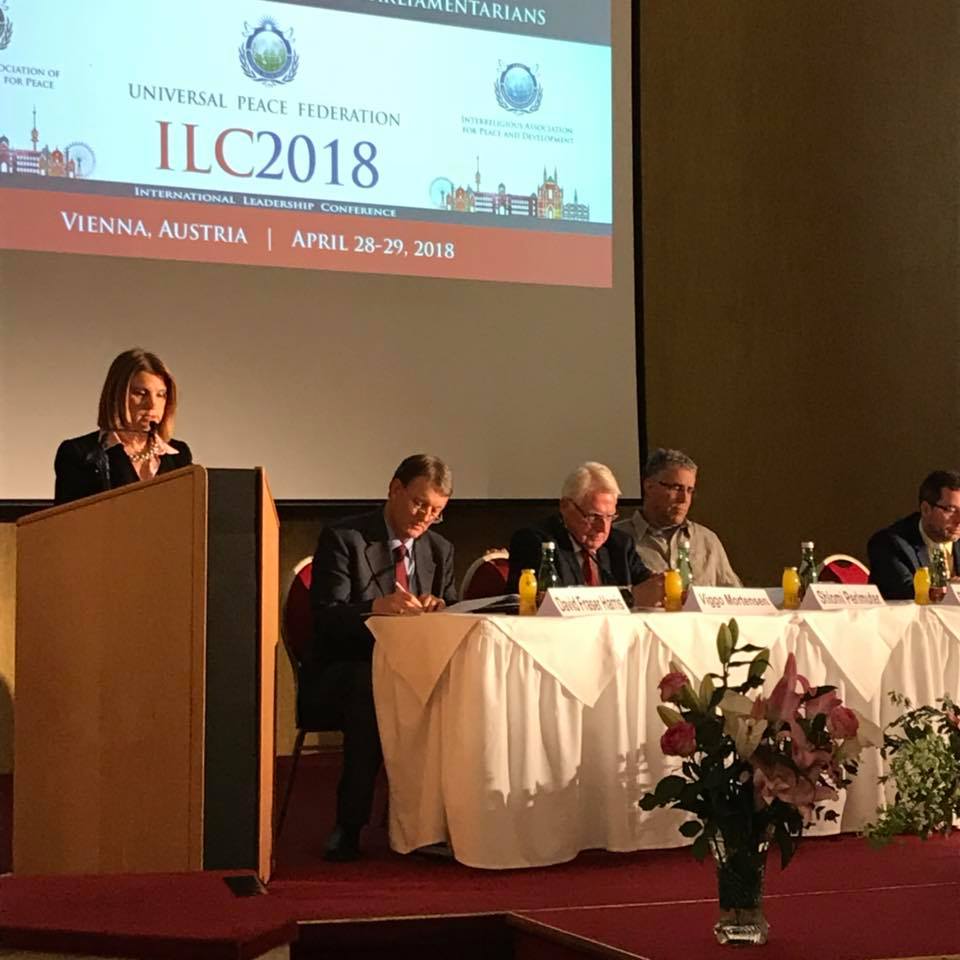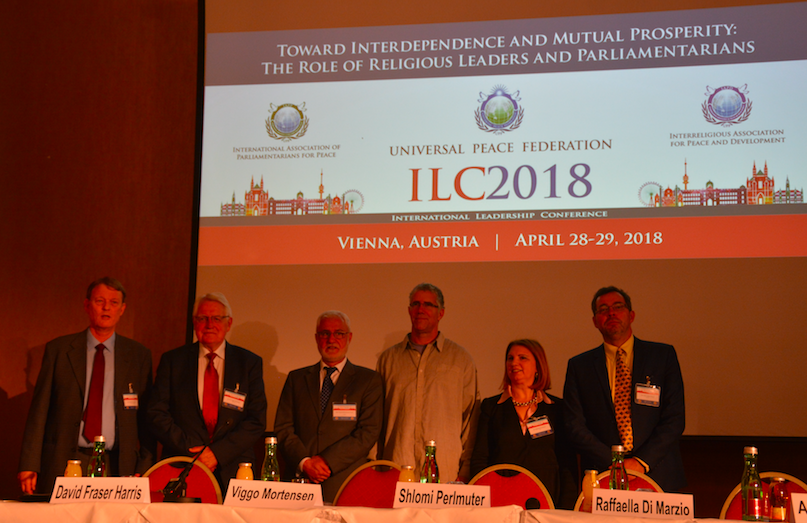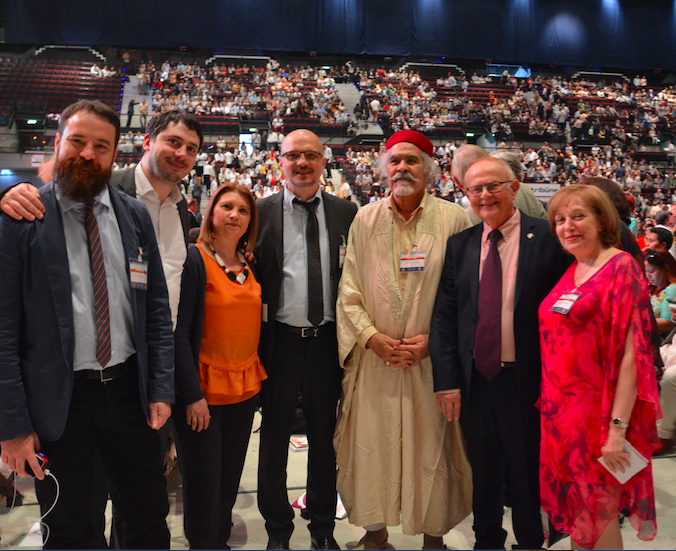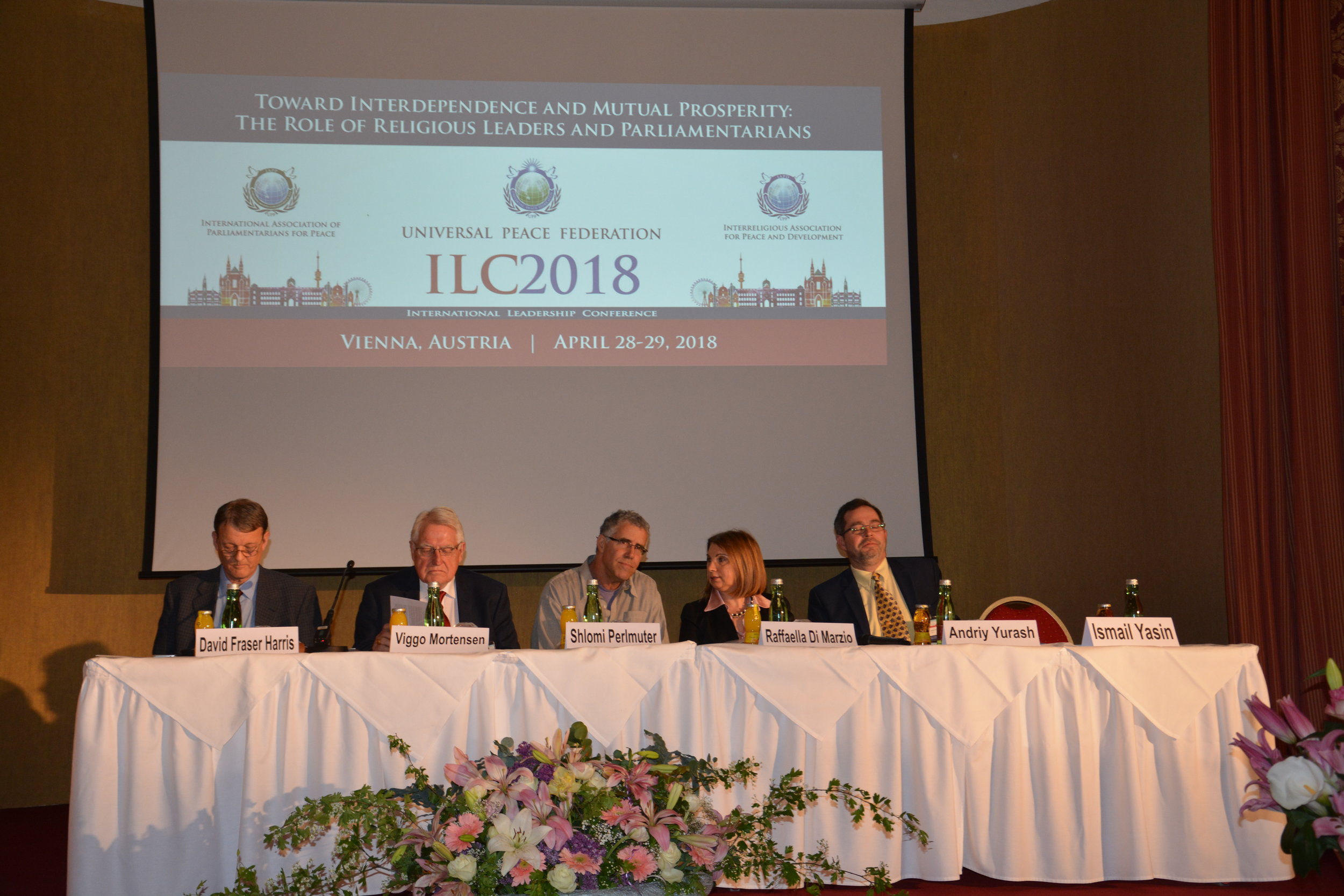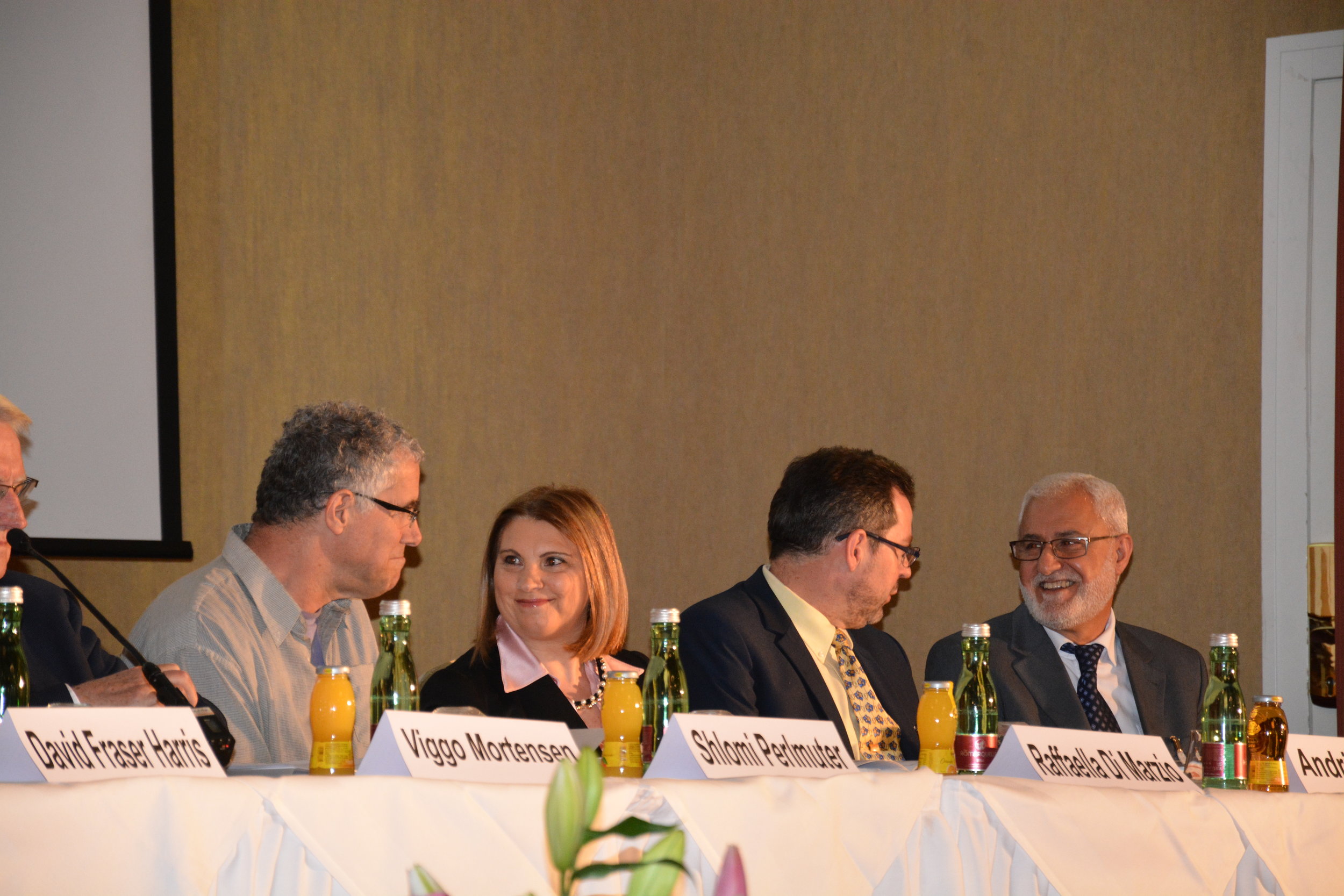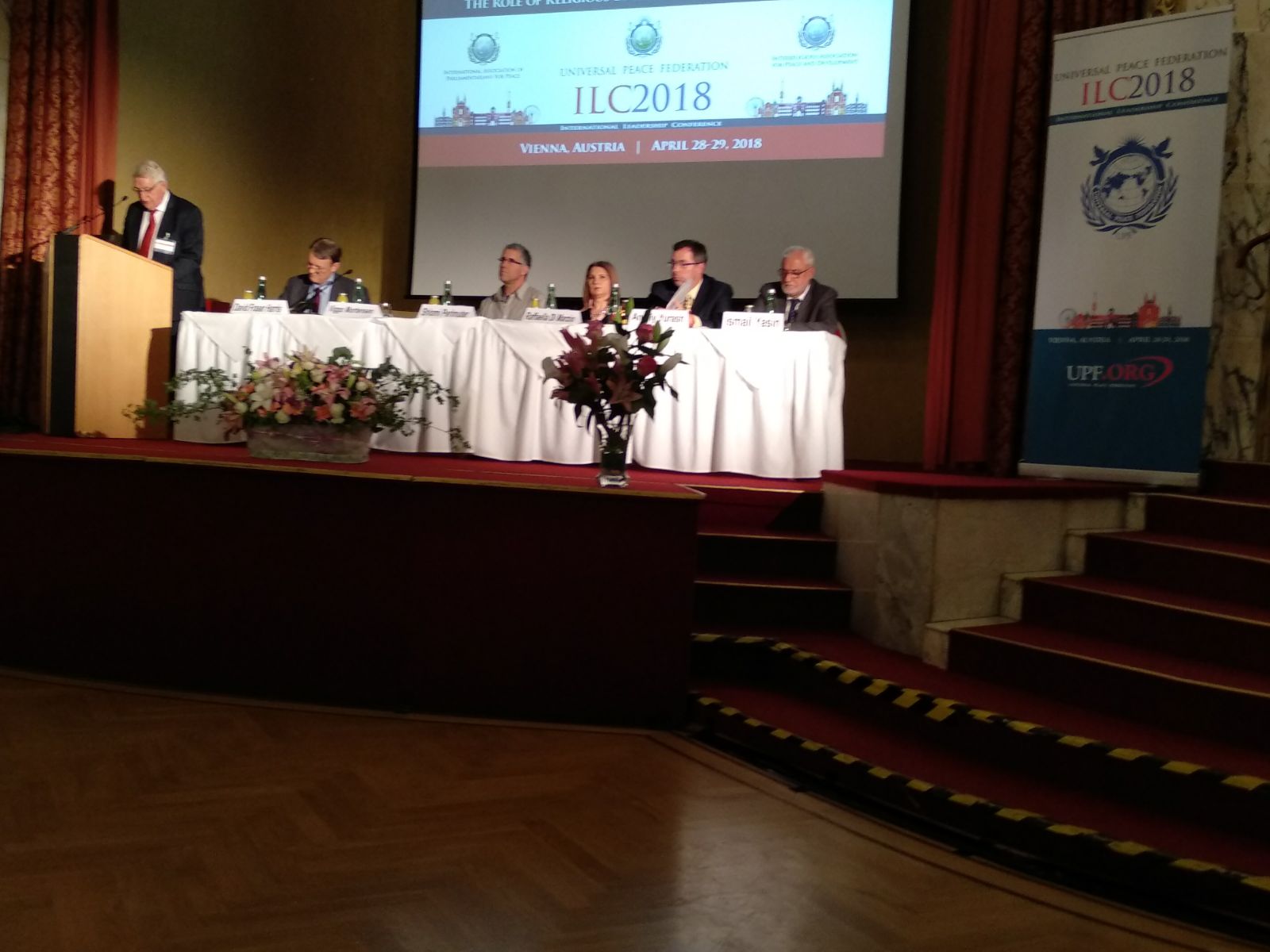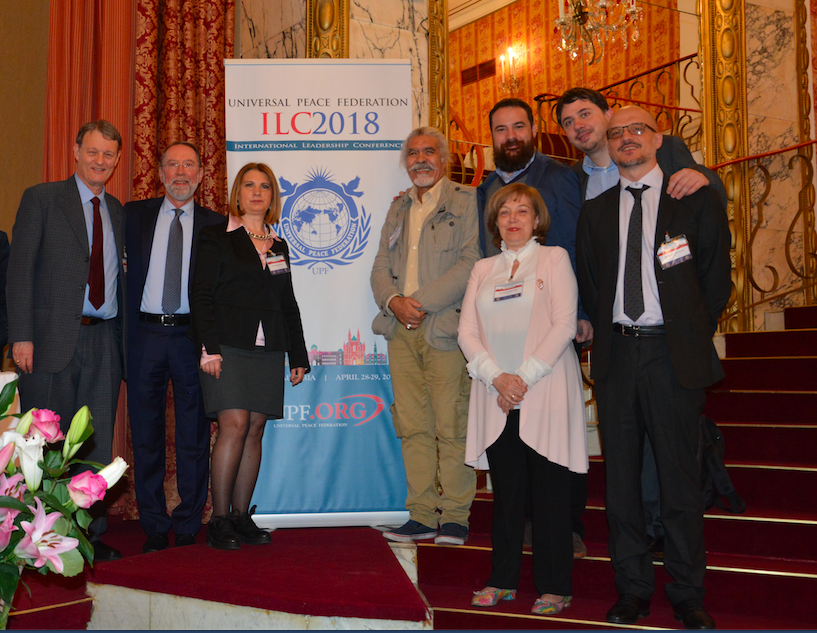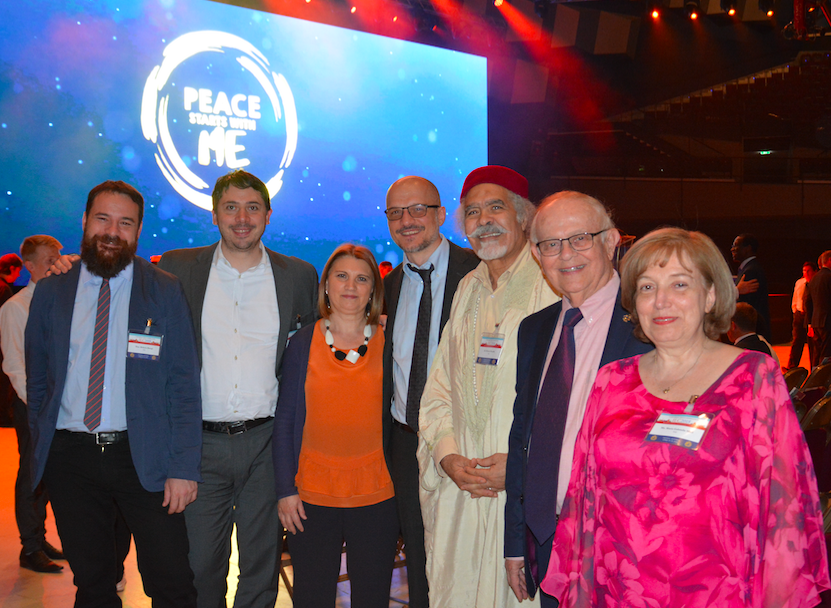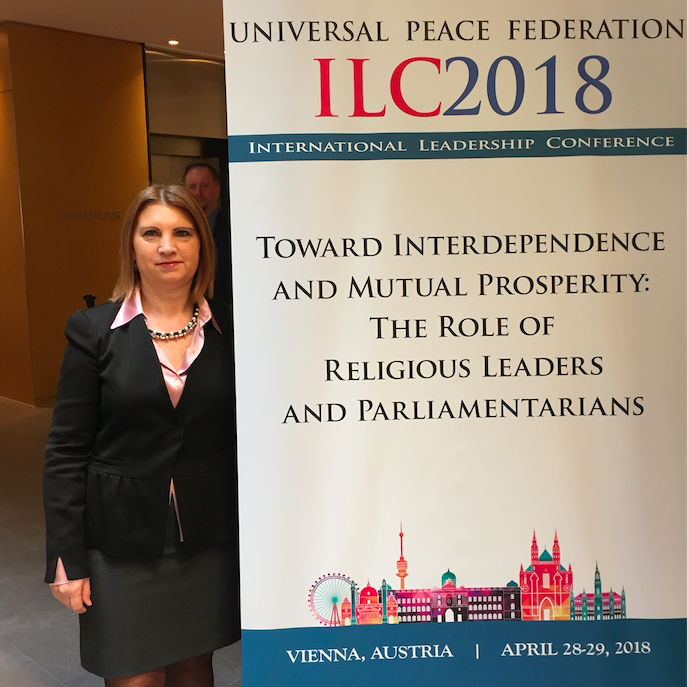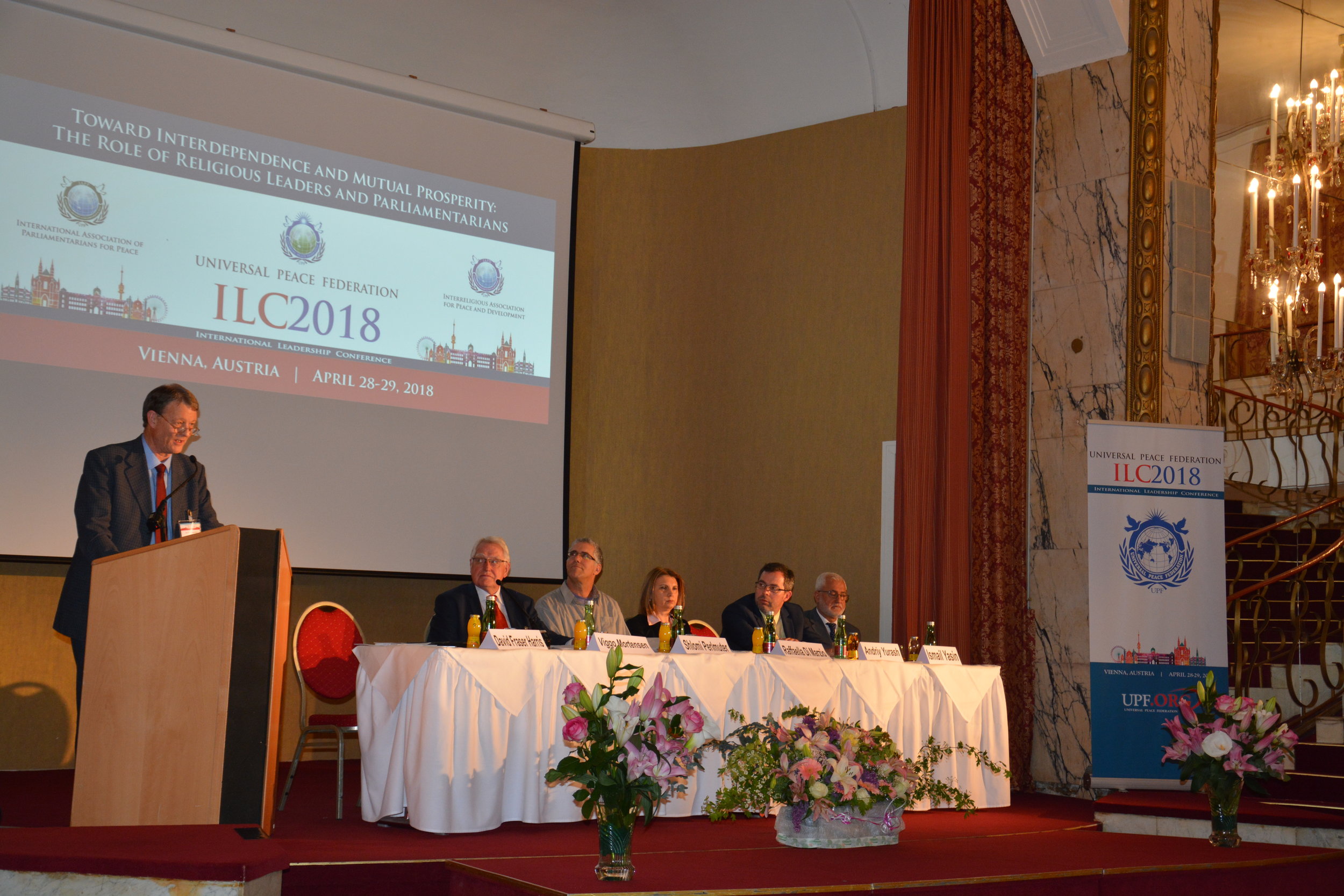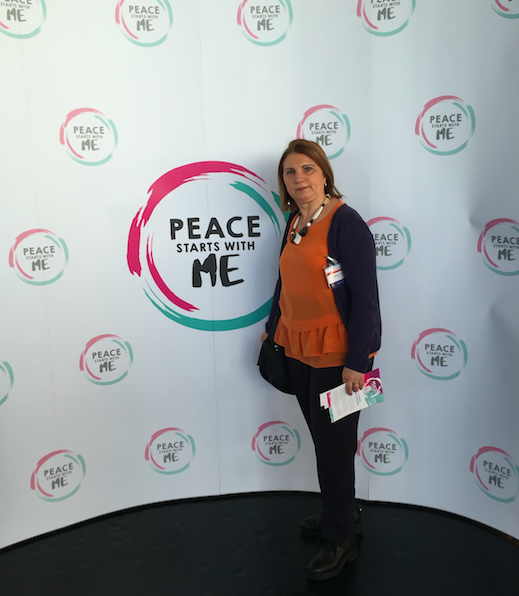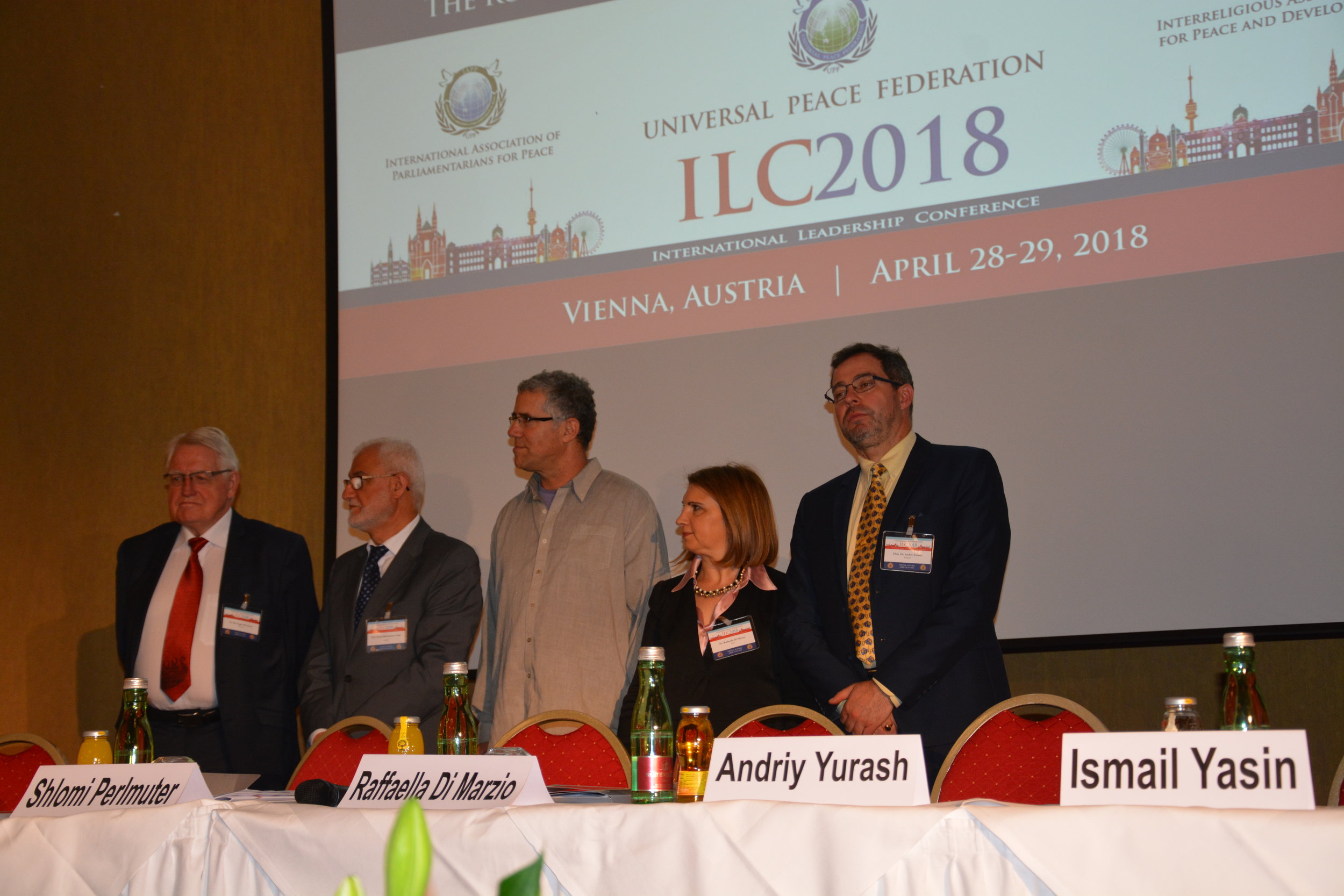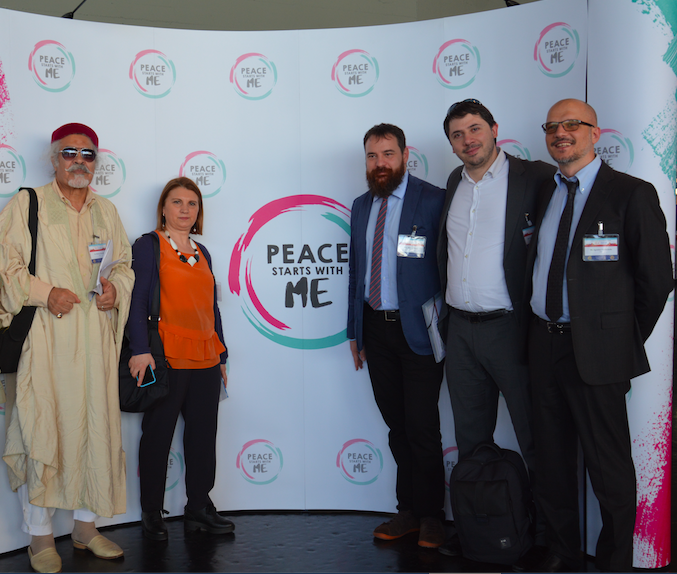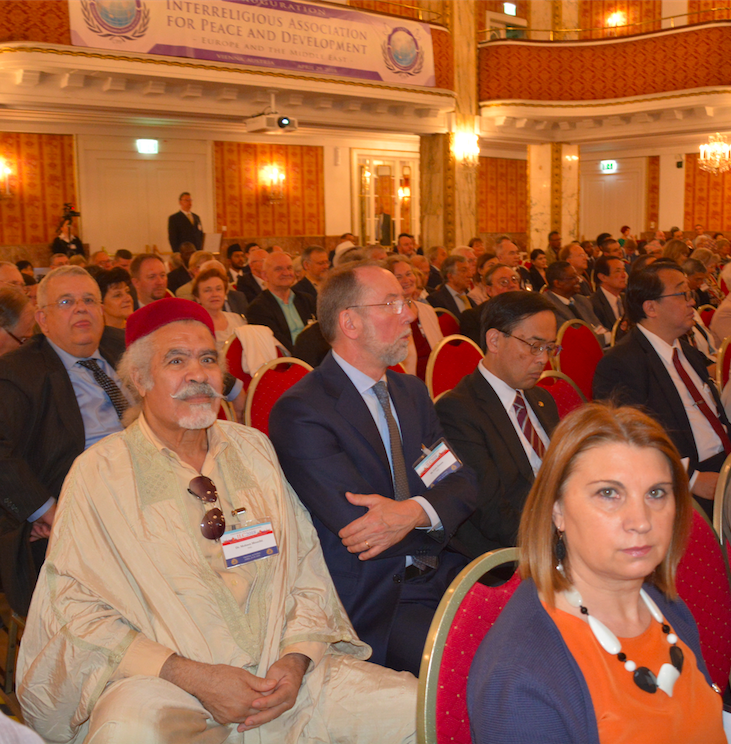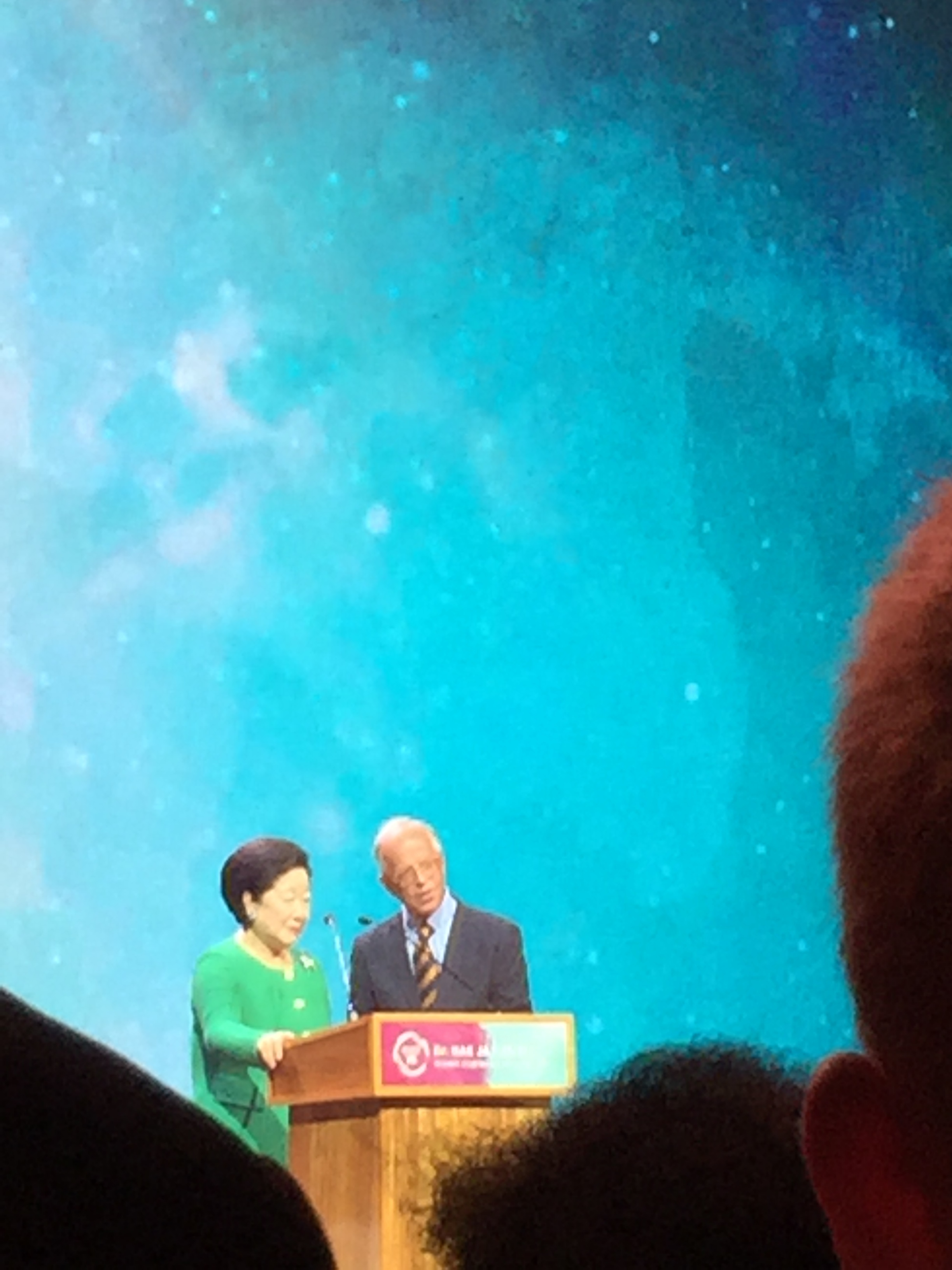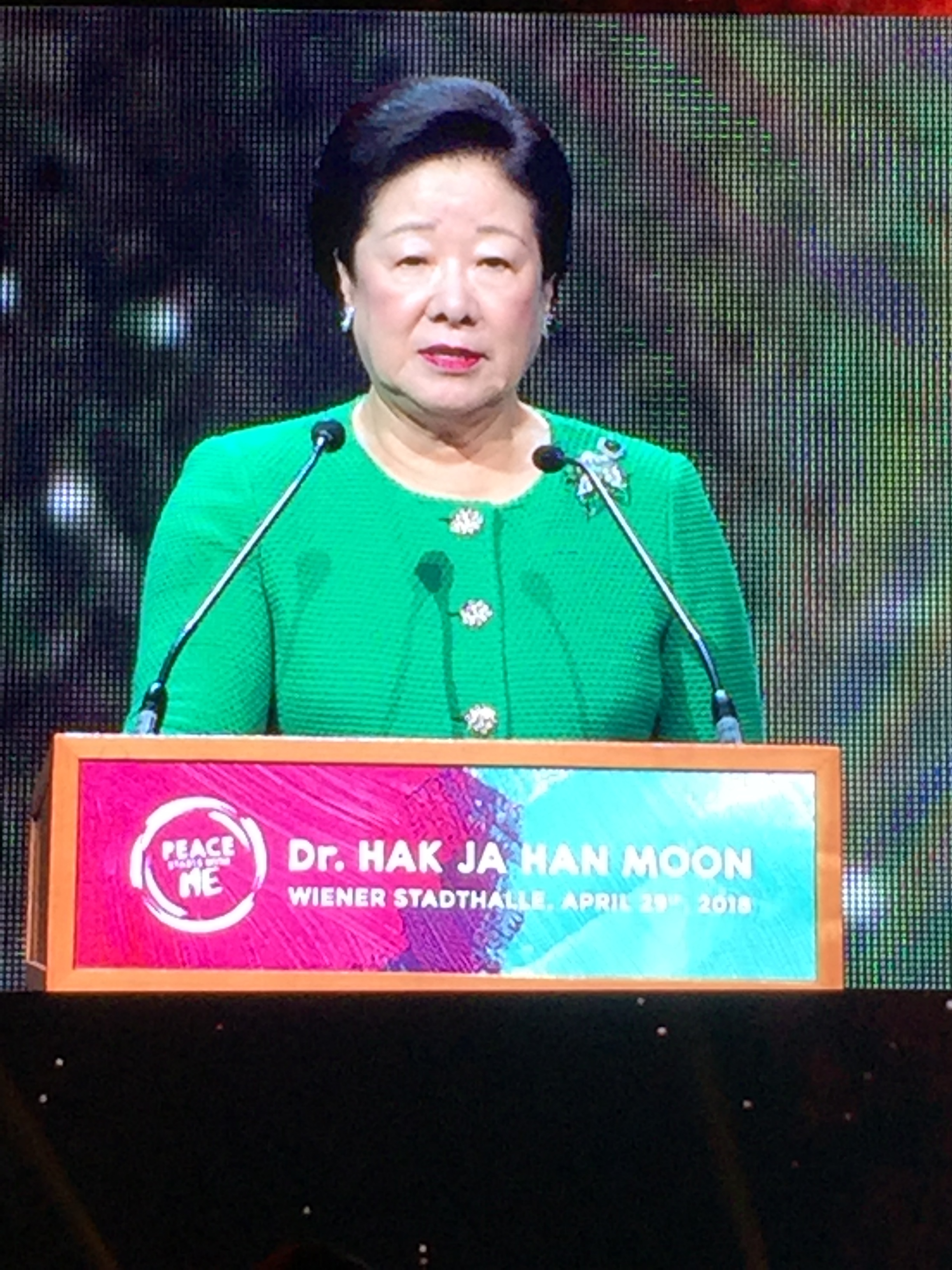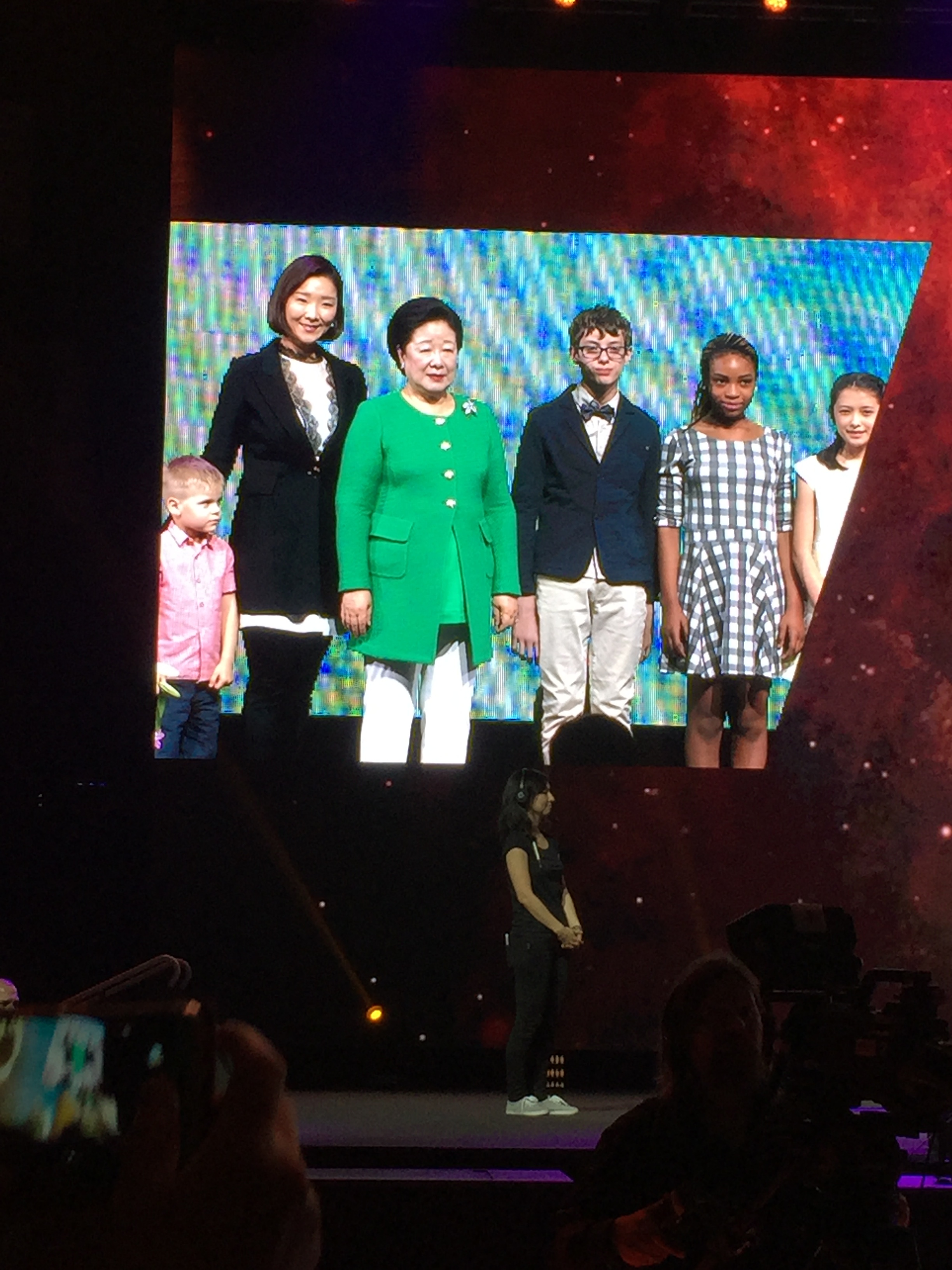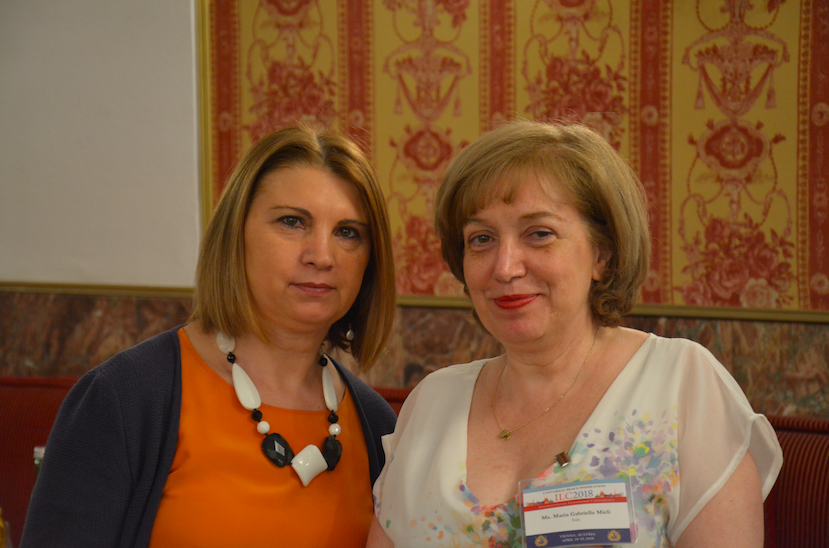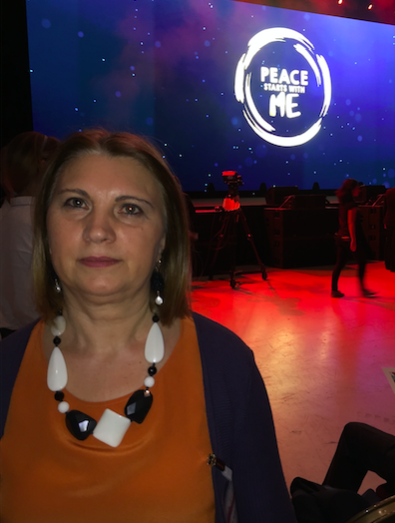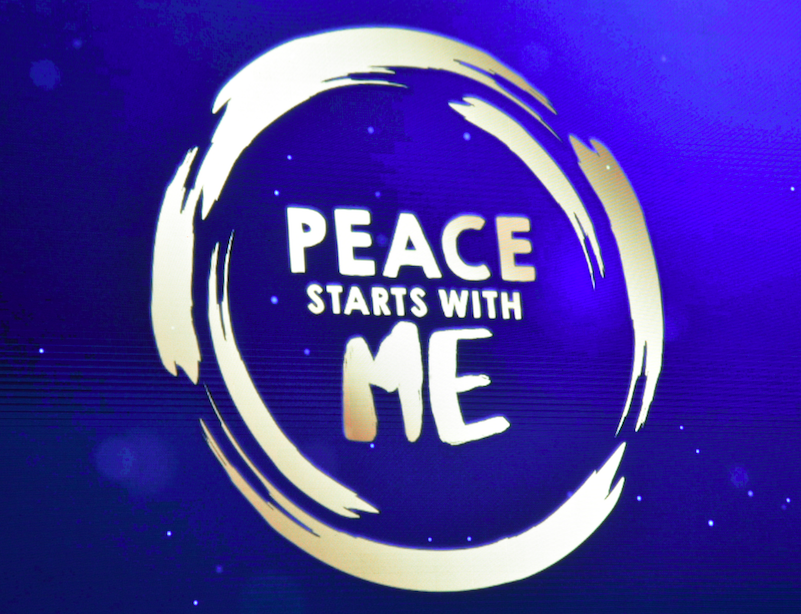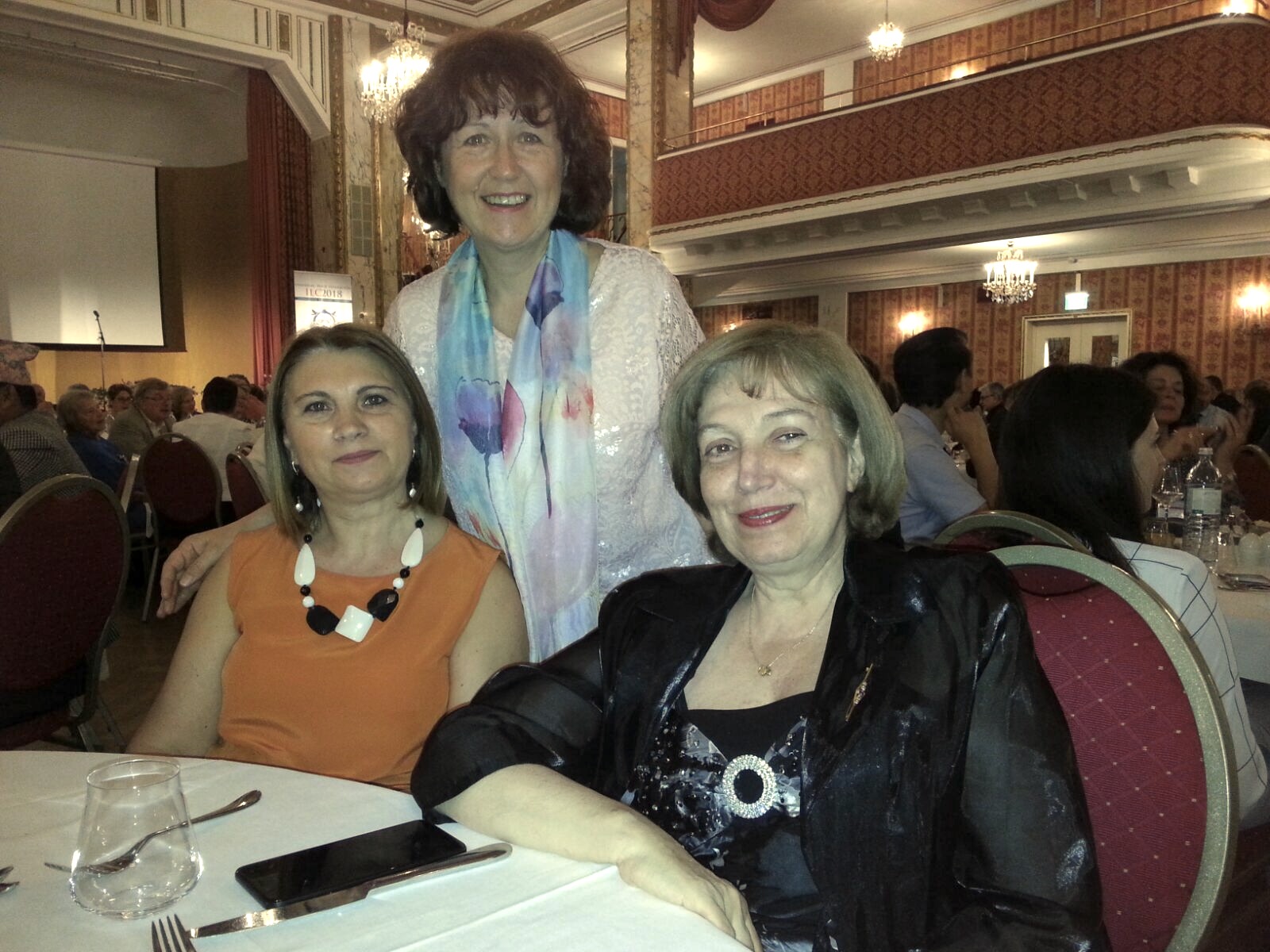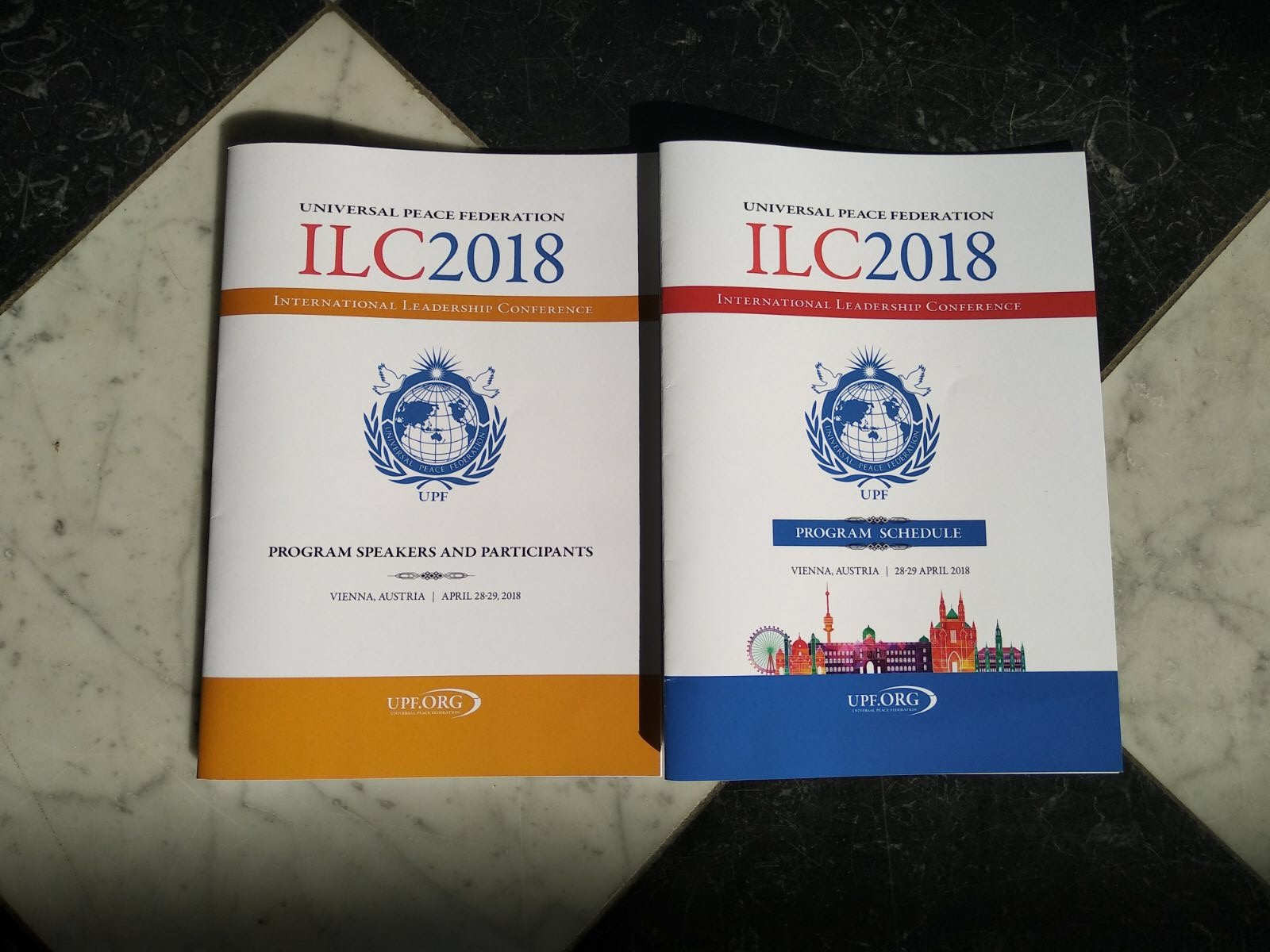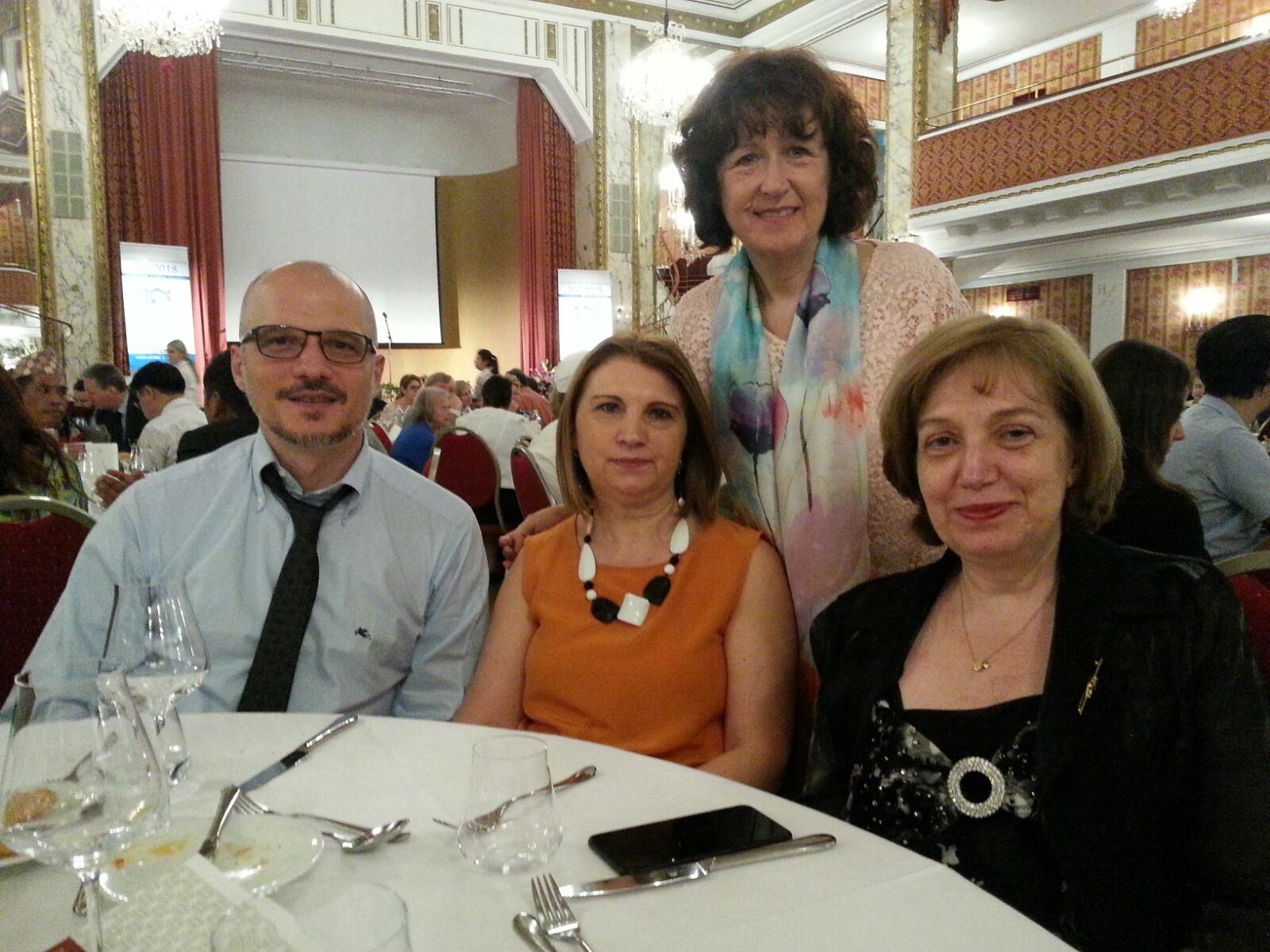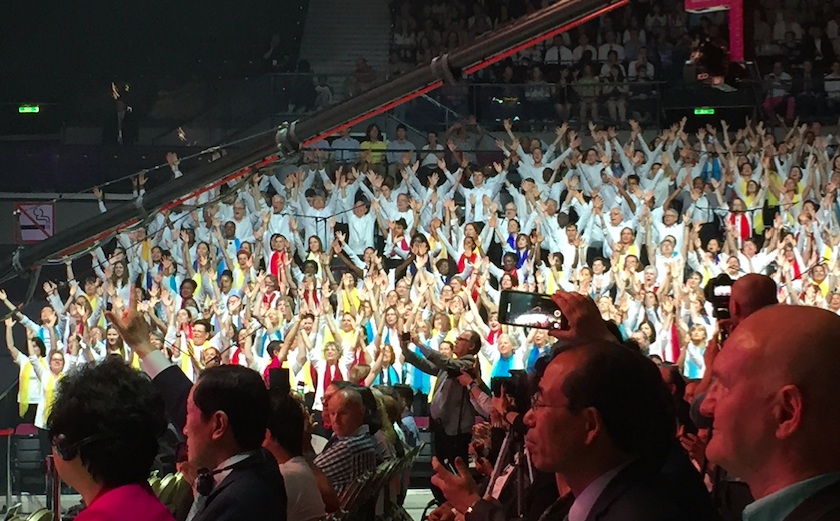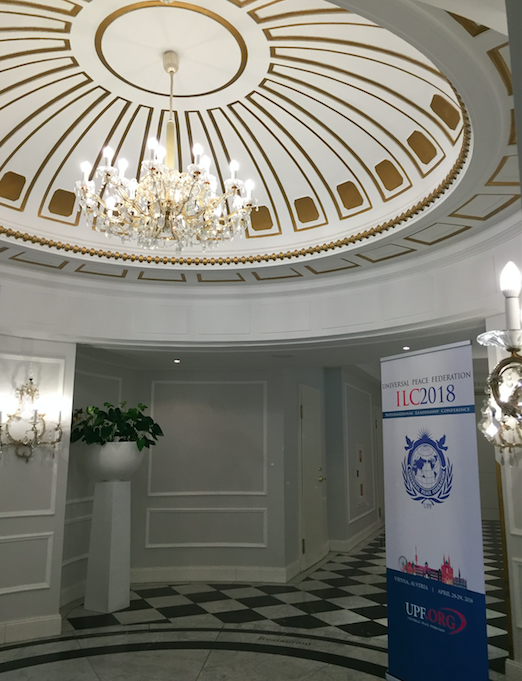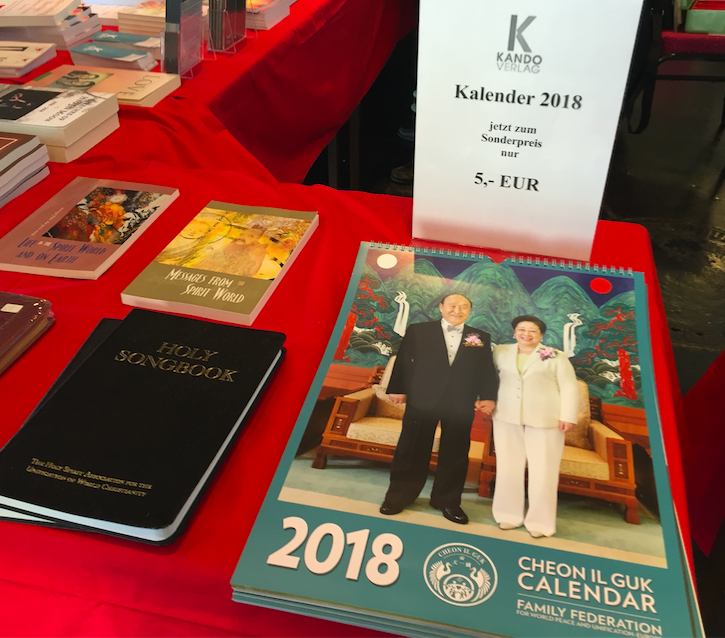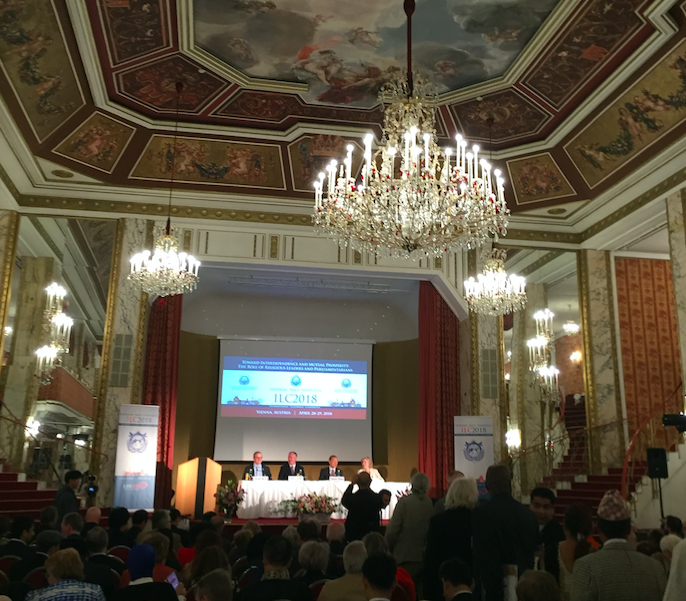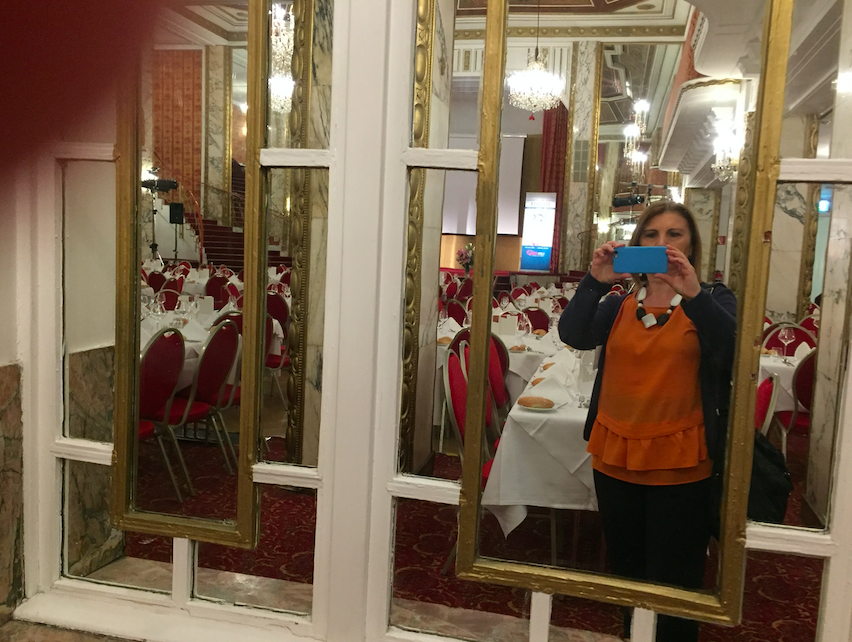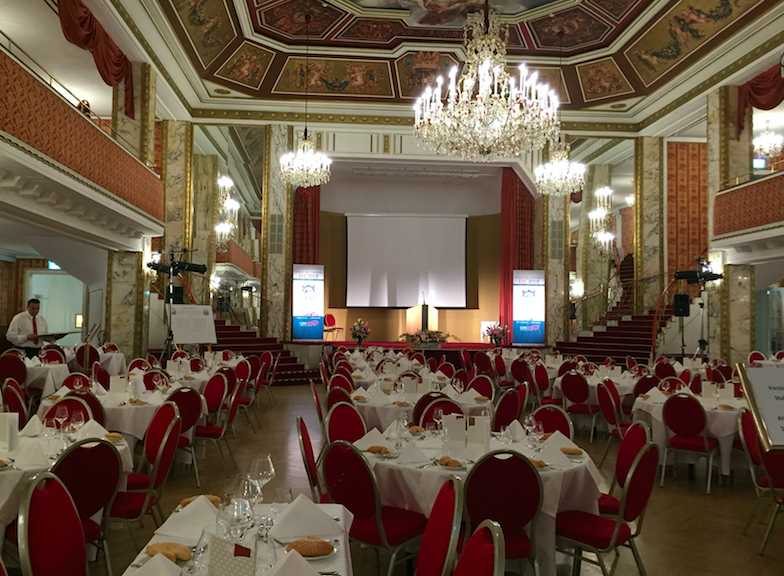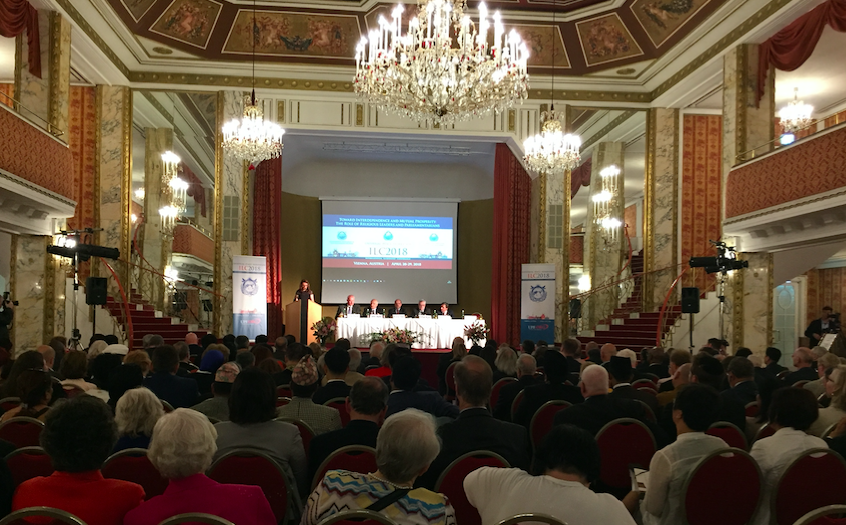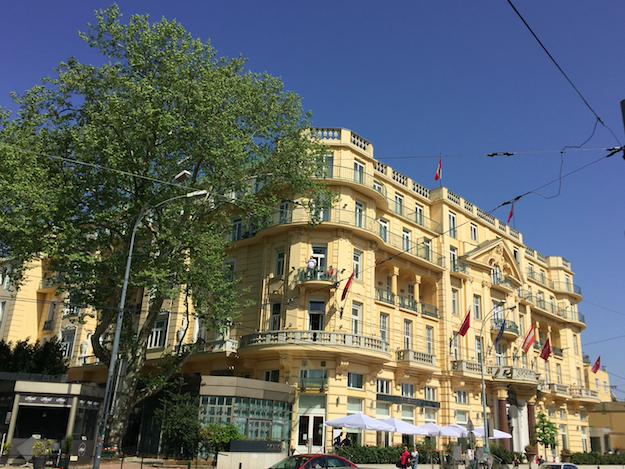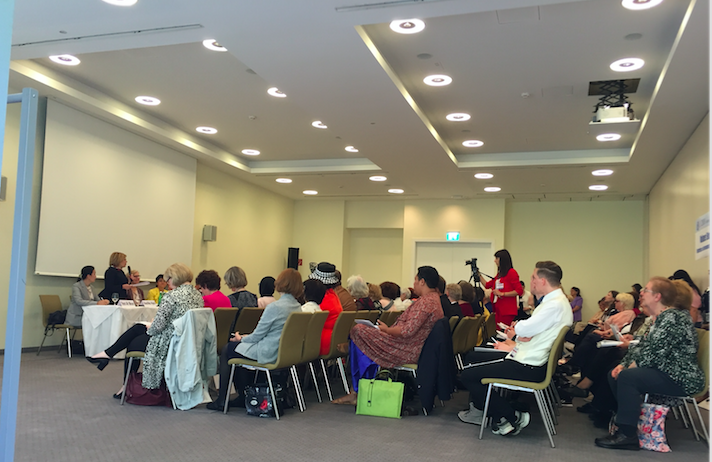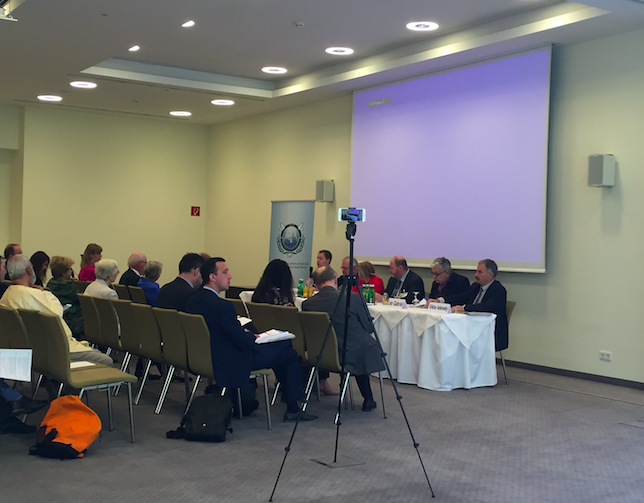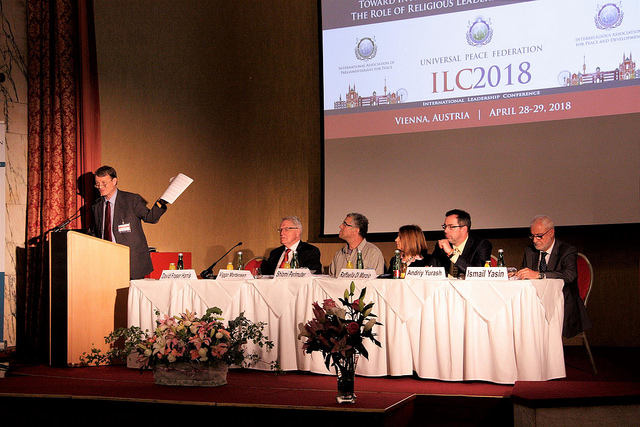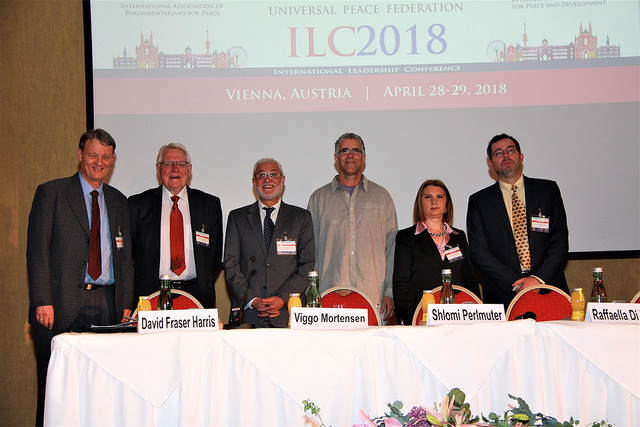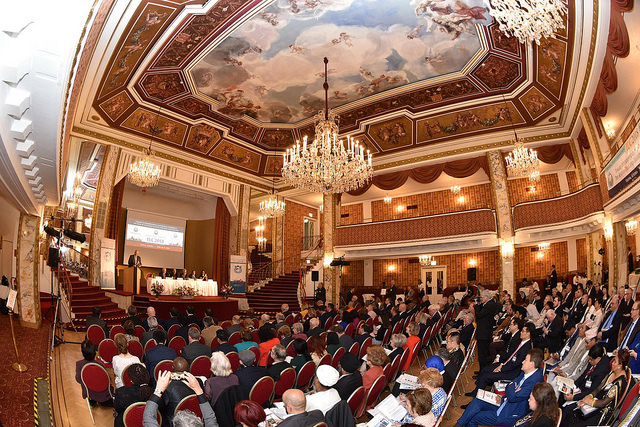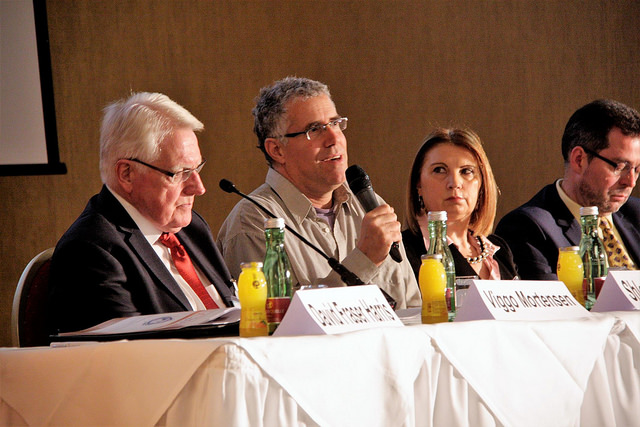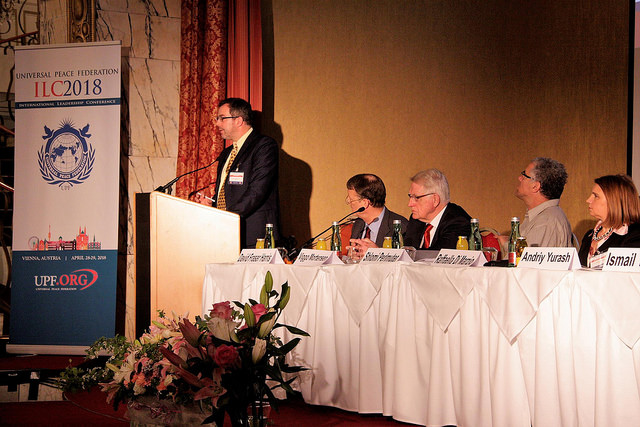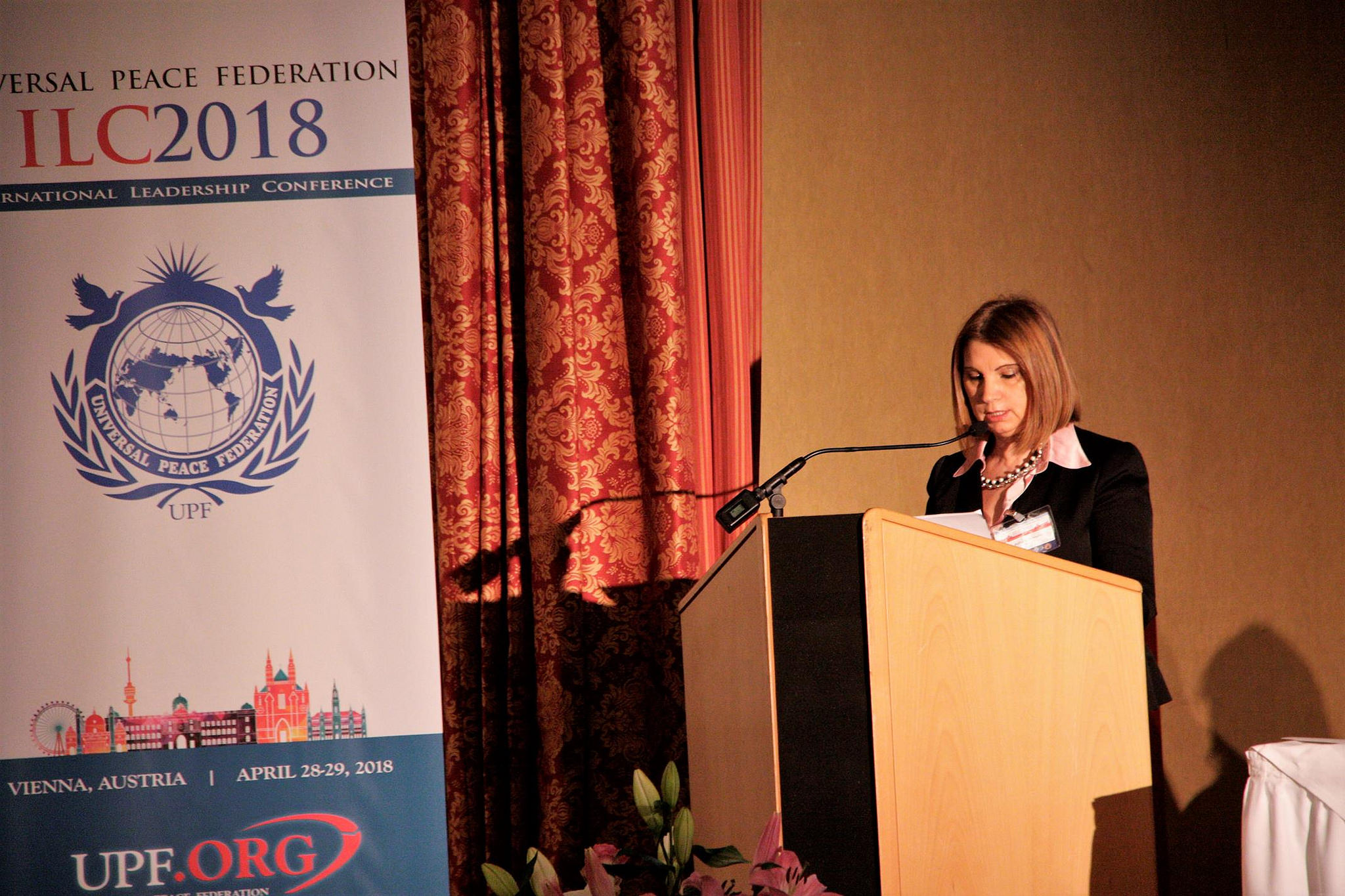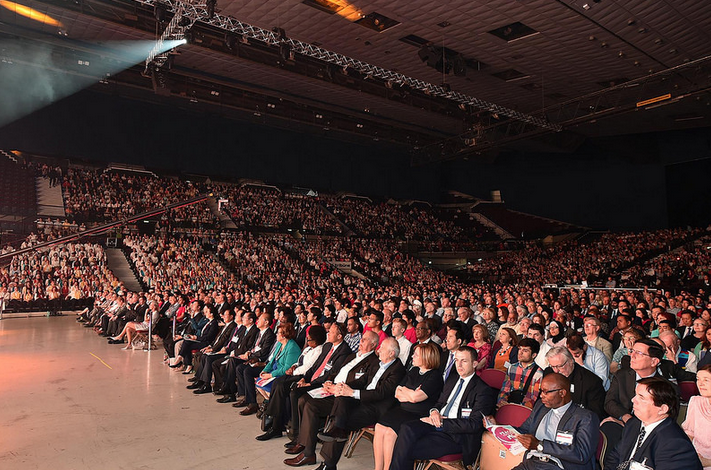Toward Interdependence and Mutual Prosperity:
The Role of Religious Leaders and Parliamentarians
Parkhotel Schönbrunn April 28 – 29, 2018 Vienna, Austria
Programme
Saturday, April 28
Morning Arrivals in Vienna and Registration
16:00 Session I: The Vision and Initiatives of the Universal Peace Federation
This session will feature an introduction to the UPF Founders’ vision and the peacebuilding principles informing the two projects recently launched by the Universal Peace Federation: the International Association of Parliamentarians for Peace (IAPP) and the Interreligious Association for Peace and Development (IAPD).
Moderator: Mr. Jacques Marion, Secretary General, UPF Europe
Welcoming Remarks: Dr. Katsumi Otsuka, President, UPF Europe & Middle East
Ms. Carolyn Handschin, UN Office Director, WFWP, International
Founders’ Vision and UPF Initiatives: Dr. Thomas Walsh, Chair, UPF International
16:30 Session II: Religious Leaders and Parliamentarians as Peacemakers
Lasting solutions to the critical challenges of our time call for both the skills and experience of politicians and the global vision provided by religious leaders. How can parliamentarians and leaders of faith-based organizations, transcending national, religious and political affiliations, cooperate to develop comprehensive strategies for peace and development? Panelists will offer their perspectives on the complementary roles of political and religious leaders and propose policies and action steps to address specific challenges affecting Europe and the Middle East.
Moderator: Mr. Peter Haider, President, UPF Austria
Dr. Elmar Kuhn, Dean, Class of World Religions, European Academy of Sciences and Arts
H.E. Fatmir Sejdiu, President of Kosovo (2006 – 2010)
Hon. Angela Guerra, Member of Parliament, Portugal
Hon. Andrey Svintsov, Member of the State Duma, Russia
Hon. Dr. Mohamad Habash, Islamic Scholar, former Member of Parliament, Syria
18:00 Break
18:30 Session III: The Role and Relevance of Religion in Building Inclusive, Peaceful and Prosperous Societies
Throughout the world, religion continues to play a very significant role in guiding the development of individuals as well as the wider society. While in some countries—in Europe, for example—there are spheres of life that are largely secularized, religion nevertheless has ongoing relevance and importance. The vast majority of the world's population identify themselves with a religious worldview that informs their ideas and guides their practices. In this session, panelists will assess the conditions under which religions can exert a positive influence on modern, democratic societies and offer policy recommendations to this effect.
Moderator: Mr. David Fraser Harris, Secretary General, UPF Middle East
Dr. Viggo Mortensen, Professor emeritus in Systematic Theology, University of Aarhus, Denmark
Mr. Shlomi Perlmuter, Senior Lecturer, Elul College, Israel
Dr. Raffaella Di Marzio, Director, Center for Studies on Freedom of Religion, Belief and Conscience (LIREC), Italy
Hon. Dr. Andriy Yurash, Head, State Department of Religion, Ukraine
Dr. Ismail Yasin, Lecturer in Islamic Studies, University of Vienna, Austria
20:00 Dinner
Sunday, April 29
7:00 Interfaith Prayer and Meditation (optional, in both hotels)
7:00 Breakfast
9:00 Session IV: Beyond Coexistence: Dealing with the Challenges of Interdependence - (Four Concurrent Sessions)
A. Values Education and Healthy Families – Fostering an Environment for Prosperity, Citizenship and Interreligious Harmony
Building a peaceful world of co-prosperity and shared values has long been the goal of religion, politics and educational institutions. In a stable, loving family, individuals may naturally develop capacities for love, respect, communication, cooperation, service, conflict resolution, forgiveness and other social skills that are relevant to life in the wider society. How can this universal principle be applied and extended to encourage harmonious social relations and partnerships for peace in our communities and in the family of nations?
Moderator: Ms. Carolyn Handschin, UN Office Director, Women’s Federation for World Peace, International
Prof. Yeon Ah Moon, President, Women’s Federation for World Peace, International
Hon. Dr. Vasilika Hysi, Deputy Speaker of the Parliament, Albania
Hon. Nina Nováková, Member of Parliament (2013-2017), Czech Republic
Rev. Ivo Sasek, President, Organische Christus Generation (OCG), Switzerland
Ms. Tahirih Danesh, Senior Programme Consultant, the Ward and Brown Foundation, United Kingdom
B. Middle East Peace Initiatives: Assessing the Role of Religion
Peacebuilding necessarily involves cooperation between all sectors of society. While the world looks in anguish at the horrors of multiple conflicts in the home of the Abrahamic faiths, the evidence on the ground suggests that such conflicts are stoked by an array of other factors, not least a dearth of civic values and near-absence of the rule of law. In what way has—and in what way can—religion play a positive role in bringing peace to the peoples of the Middle East?
Moderator: Ms. Natascha Schellen, Communications Advisor, WFWP Europe;
Vice-President, WFWP Germany
Mr. Oraib Al Rantawi, General Director, Al Quds Center for Political Studies, Jordan
Hon. Tahani Abu Daqqa, Former Minister of Sports, Palestine
Dr. Jihad Naaman, Professor, Lebanese University, Lebanon
Rev. Anders Gadegaard, Dean of the Cathedral, Evangelical Lutheran Church, Denmark
C. Toward a New Dialogue between Europe and Eurasia
After the end of the socialist system in Europe, following the dissolution of the USSR, Czechoslovakia and Yugoslavia, new sovereign states with new borders appeared on the map of Europe. In the context of the current geopolitical realities, participating nations of the Organization of Security and Co-operation in Europe (OSCE) need to come to the negotiating table to revise the Helsinki Accords to reach a mutually acceptable understanding of the previous frameworks and discuss their possible modification. Panelists in this session will offer their perspectives on the role that may be played by the OSCE Parliamentary Assembly – and by the International Association of Parliamentarians for Peace (IAPP) – in this undertaking.
Moderator: Dr. Vladimir Petrovskiy, Chief Academic Researcher, Institute of Far Eastern Studies, Russian Academy of Sciences, Russia
Dr. Walter Schwimmer, Secretary General, Council of Europe (1999-2004)
Dr. Alexander Dubowy, Researcher, Austrian National Defense Academy, Austria
Ms. Dalila Khorava, President, Georgia for Refugees, Georgia
Hon. Viktor Ielensky, Member of Parliament, Ukraine
Dr. Leo Gabriel, Journalist and Anthropologist, Austria
D. Peace Initiatives in the Balkans
As a historical crossroads of empires and cultures, the Balkan Peninsula is the center of political, cultural and religious influences that make it a significant field for interreligious and intercultural peacebuilding in Europe in the 21st century. In this session, panelists will offer their perspectives on peacebuilding initiatives undertaken in the Balkans and recommend action steps toward a peaceful and democratic future in the region. This session also will feature a presentation of the Balkan Peace Road project promoted by UPF.
Moderator: Prof. Anis Bajrektarevic, Head, IFIMES Permanent Mission to Austria and Vienna-based Intl Organisations
Hajji Baba Edmond Brahimaj, World Leader, Bektashi Order, Albania
Mr. Mirnes Kovač, Journalist, Preporod Islamic News Magazine, Bosnia and Herzegovina
Hon. Dr. Skender Recica, Minister of Labor and Social Welfare, Kosovo
Mr. Alksandar Pekovic, Ljubljana Creative Forum, Serbia
Ms. Manjola Vasmatics, Secretary General, Tirana UPF Peace Council, Albania
10:30 Break
11:00 Session V: Inauguration of the Interreligious Association for Peace and Development (IAPD) in Europe and the Middle East
It is time for humanity to embrace universally shared values, going beyond differences of ideology, race, nationality, and religion, and pursue a path of mutual cooperation and mutual prosperity. In this way it is possible to build a world of lasting and sustainable peace that can be bequeathed to future generations. To fulfill this task, religious leaders have a primary responsibility to cooperate beyond denominations and work in harmony with leaders in all fields of society. In this session, religious leaders and leaders of faith-based organizations will propose the formation of a world-level interfaith association through which to work together for peace and development.
Moderator: Dr. Thomas Walsh, Chairman, UPF International
Keynote speech: Dr. Felix Unger, President, European Academy of Sciences and Arts
Archbishop Dr. Johannes Ndanga, President, Apostolic Christian Council of Zimbabwe Ms. Asmaa Kftaro, Women's Advisory Board, UN Envoy for Peacebuilding in Syria
Rev. Dr. William McComish, Dean Emeritus, Geneva St. Peter’s Cathedral, Switzerland
Rev. Dr. Marcus Braybrooke, President, World Congress of Faiths, United Kingdom
Musical interlude
Interreligious prayer
Father Mariano Perron, Delegate for Interconfessional Affairs (1974-2012), Roman Catholic Church, Diocese of Madrid, Spain
Rector Khalil Merroun, Rector, Mosque of Evry, France
Peace Ceremony
IAPD Declaration
Dr Elmar Kuhn, Dean, Class of World Religions, European Academy of Sciences and Arts
12:30 Lunch
13:45 Buses depart to the Wiener Stadthalle
15:00 “Peace Starts with Me” Festival - Wiener Stadthalle, Vienna
17:30 Buses depart to hotel
19:00 Closing Banquet
Moderator: Mr. David Fraser Harris, Secretary General, UPF Middle East
Congratulatory Remarks: H. E. Alfred Moisiu, President of Albania (2002 – 2007)
Closing Remarks: Dr. Michael Balcomb, Chairman, FFWPU Europe & Middle East
Monday, April 30
7:00 Breakfast
Departures
